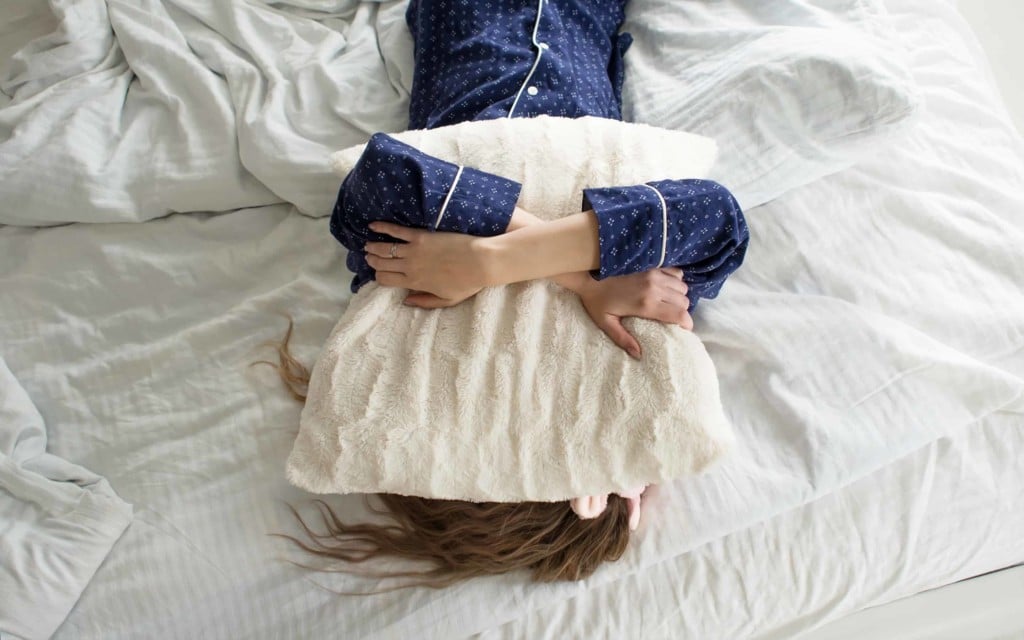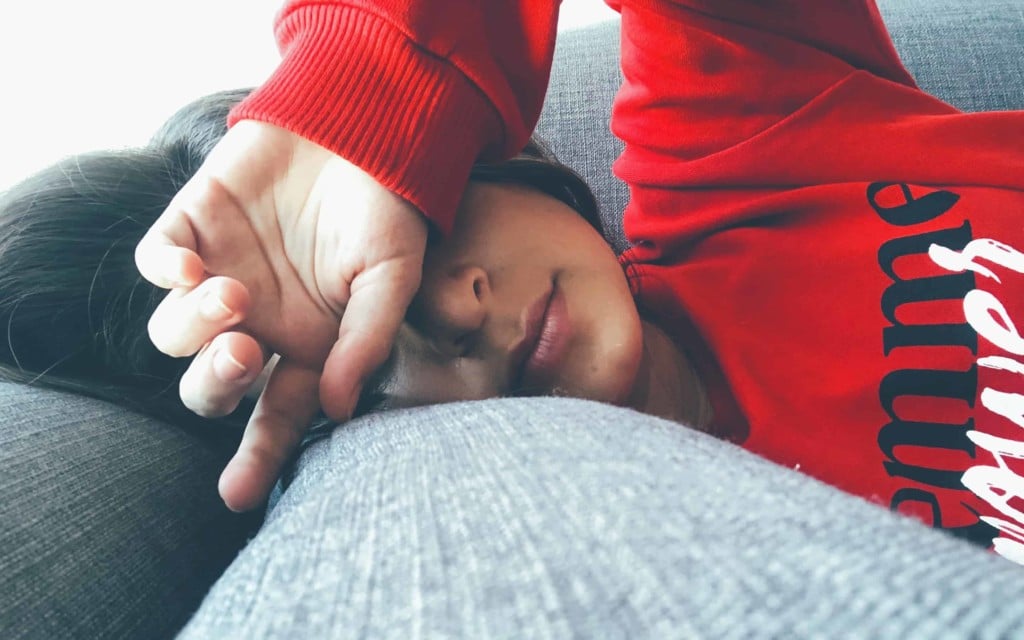Let’s face it, most of us could do with a lot more sleep. You can feel your desire for that extra slumber in the urge to pour another cup of coffee, or the stress that builds when your alarm goes off each morning.
We wish for sleep with every yawn and tired eye rub. Yet when the time comes to actually fall asleep at night, countless problems often get the best of us.
Sleep is an elusive mistress, but just because you’re tired, doesn’t necessarily mean that you’re dealing with sleep deprivation. There’s a big difference between wanting a couple of extra hours with your bed and having so much sleep debt that you can barely keep your eyes open.
When you’re sleep deprived, either acutely, or chronically, the impact on your physical and mental health is often dramatic. Your memory, attention span, and even general motivation will suffer. If that wasn’t enough, the more sleep deprived you are, the more likely it is you’ll suffer with other forms of sleep issues, like sleepwalking and sleep talking.
So, how do you diagnose, understand, and start managing sleep deprivation?
This complete guide will help you track down your lost Z’s.

What is sleep deprivation: Types of sleep deprivation
Let’s start simple: “What is sleep deprivation?”
Crucially, sleep deprivation isn’t just losing out on a little sleep. Instead, this issue is what happens when you’re not getting enough sleep to feel alert and rested. If you wake up early but you can get through your day feeling relatively normal, then you’re not sleep deprived — you’re just tired.
Unfortunately, even losing out on a little sleep can lead to chronic sleep issues over time. If you’re constantly losing out on sleep, your level of “sleep debt” gets to a point where you simply can’t recover. Chronically sleep-deprived people are generally more prone to problems like disease, accidents, and workplace absenteeism.
There are 3 different kinds of sleep deprivation to consider:
Transient sleep deprivation
Transient sleep deprivation is a form of insomnia or sleep loss that happens temporarily. For instance, you might suffer from sleep deprivation after taking a global flight, because switching between time zones makes it difficult to get the quality and amount of sleep you need.
Usually, it’s easy to overcome transient insomnia by just getting a bit of extra sleep and falling back into a normal routine. However, don’t take this sleep issue lightly. Like all types of sleep deprivation, it can progress into something more serious if allowed to worsen.
Acute sleep deprivation
Similar to short-term or transient sleep deprivation, acute sleep deprivation references a short-term period of sleep loss. The main difference is that acute issues usually come with more serious symptoms than their transient counterparts.
An acute issue can last for anywhere up to a month, which is more than enough time to leave you desperately searching for new methods of managing sleep deprivation.
The chances are that you’ll experience a number of symptoms with acute sleep deprivation, including daytime drowsiness, trouble concentrating and emotional issues.
Chronic sleep deprivation
By far the most severe of the different types of sleep deprivation, chronic conditions often last for over a month, and can cause many very serious side effects.
If you’re constantly dealing with a lack of sleep, then the chances are that you’ll experience issues like double vision, mental fatigue, and even hallucinations. Sometimes, chronic sleep deprivation can also cause other sleep disorders, such as sleep paralysis.
It’s important to work quickly with a sleep specialist and doctor to get to the bottom of chronic sleep deprivation.

What are the common signs and symptoms of sleep deprivation?
If you’re wondering “what happens to my body with sleep deprivation?” there are a number of potential symptoms and side effects to consider. Lack of sleep can affect different people in unique ways.
One thing you can be sure of, is that you’re not going to feel as well as you do when you’re fully rested. The more you continue to be sleep deprived, the more your symptoms will worsen.
The most obvious, and common symptom of sleep deprivation is drowsiness, or feeling sleepy. Some people describe the experience as feeling “run down”. Other common symptoms of sleep deprivation include:
Behavioural and mood changes: You might feel more angry, short-tempered, anxious, or more depressed than usual.
Difficulty concentrating: This could lead to decreased reaction times, impaired school and work performance, or a higher risk of car accidents.
Problems with planning and organization: Judgement, problem-solving, and other high-level functions are impaired when you’re sleep deprived.
Physical discomfort: General aches and pains, gastrointestinal issues like diarrhoea and other physical problems are common when you’re sleep deprived.
Psychiatric symptoms: Beyond mood changes, you may find that managing sleep deprivation means dealing with paranoia, disorientation, or even hallucinations.
Disruption in circadian rhythm: Being unable to sleep will throw your body clock out of whack. Changes to your sleep cycle interfers with the production of sleep hormones, such as melatonin and cortisol.
Changes in long-term health: Your blood pressure, heart rate, and other crucial functions can be affected by lack of sleep.
Ultimately, regardless of why you aren’t sleeping, sleep deprivation can have a huge impact on how you live your life. At first, when you spend a few late nights on the sofa watching Netflix, the symptoms might be mild, like a general drowsiness or trouble concentrating. However, as time goes on, lack of quality sleep often becomes more of a significant issue.

How does sleep deprivation affect health?
We’ve already looked at how sleep deprivation can lead to numerous problems in the form of physical and psychological symptoms.
However, there’s so much more to the affects of sleep deprivation than you might think. From a physical perspective alone, sleep deprivation negatively impacts a huge range of symptoms in the body. For instance, when you don’t get enough sleep, your body can’t strengthen the immune system and produce cytokines to fight infection.
The more sleep you lose, the harder it is to overcome illness. That’s one of the reasons why your doctors will always recommend “rest” when you’re overcoming an ailment. Sleep deprivation can also improve your chances of dealing with more serious long-term and chronic illnesses.
When you fall asleep each night, you’re not just “shutting down”. Your body performs various functions to keep you healthy. Sleep and physical health are connected.
Sleep even helps your heart vessels to rebuild and heal, while affecting the processes that maintain and control blood pressure too. Not sleeping enough will increase your risk of cardiovascular disease, and it could lead to problems with hormone production, leading to a higher risk of infertility.

Your brain on sleep deprivation: Sleep deprivation and mental health
While the connection between sleep and physical health can be quite worrying, the problems get even more severe when we start to look at the brain.
Your brain depends on a consistent amount of sleep each night. If you’re suffering from any of the various types of sleep deprivation, then your brain begins to decay as a result. According to sleep disorder experts, sleep changes the structure of the brain on a molecular level. Studies prove that frequent problems with lack of sleep lead to changes in crucial regions of the brain.
You already know that sleep deprivation and mental health have a link when it comes to focus and concentration. Sluggish communication between the brain-cells in sleep deprived people means that it’s harder to focus on essential tasks.
However, it’s not just how you think that’s affected. How you feel in general can begin to change when you’re managing sleep deprivation too.
Research indicates that areas of the brain can become hyper-sensitive when your sleep deprived, as well as losing concentration. For instance, the regions of the brain that affect how we feel when we do something fun or exciting start to change.
One study in 2017 found that the regions in the brain become hyper-sensitized by sleep loss, which means that we can’t accurately judge the risk/reward balance in the things we do. For instance, we might gamble more when we’re exhausted because we can’t assess the risks properly.
Sleep deprivation and mental health also have another connection, in the amygdala part of the brain. The amygdala is the part of the brain that regulates the emotions. In people suffering from sleep deprivation, the part of the brain that’s responsible for keeping your emotions in check stops functioning properly. This means that you’re more likely to experience emotional instability.
According to research published in 2018, hyper-sensitive amygdalas mean that we’re more prone to mood swings, and rapid emotional responses. This means that when you’re low on sleep, you’ll feel more anxious, depressed, and fearful than you would naturally.
Obviously, for people who already suffer from emotional disorders, this means that dealing with things like anxiety and depression becomes a lot more difficult. Everything that you feel will be enhanced by the emotional triggers in your brain.

Tips for managing sleep deprivation
For anyone, sleep deprivation probably doesn’t seem like much fun.
However, the good news is that there are things you can do to counteract the effects and start to get your sleep routine back on track.
Obviously, the easiest way to overcome the effects of sleep deprivation once and for all is to get more sleep, and make sure that you keep your circadian rhythm on track. Crucially, you can’t just nap your way through the day and expect to see results. Naps work differently on the brain than real deep sleep, so it’s often better to go to bed earlier if you need it than it is to nap in the day.
Other ways of boosting your chances of managing sleep deprivation include:
1. Relax
We know, it’s easier said than done. However, anxiety and stress really are some of the biggest enemies of sleep. If you want to overcome sleep deprivation, then you’ll need to let go of whatever is bothering you — at least for the night.
Write your worries down in a journal if it helps or consider using some basic meditation techniques. You can even have a hot bath before bed if that helps you to feel more at peace with yourself. Stop watching TV a while before sleep, as the topics of what you’re watching might aggravate your mind.
If you continue to struggle with feelings of anxiety that are heightened by sleep problems, then you might need to speak to a doctor or therapist about getting some extra help.
Treatments like cognitive behavioural therapy can be incredibly useful when it comes to dealing with significant problems with anxiety and stress. If you have a disorder like PTSD or depression, your doctor may also recommend using medication.
2. Add exercise to your day
While you’re adding meditation and relaxation techniques to your routine, think about whether you can stock up on some extra exercise too. Working out helps to ramp up your dopamine, while reducing cortisol — so it’s easier to overcome feelings of stress.
Additionally, regular exercise can be a great way to manage the food cravings and weight gain that are common among sleep deprived people.
The key to success with your exercise for sleep is to make sure that you get the right kinds of workout into the right periods of your day. Starting the day with a bout of cardio to get your heart pumping is a great strategy to energize yourself. If you can soak up some natural light at the same time, you’ll help to get your circadian rhythm in check, improving your chances of sleep later on.
In the evening, the kind of exercise you do will need to be toned down a bit. Things like pilates and yoga are more suited to your evening exercise routines.

3. Improve your sleep hygiene
Whether you’re dealing with sleep deprivation, insomnia, or virtually any other problem with your sleep levels, the best thing you can to is work on your sleep hygiene.
There are many different components to successful sleep hygiene. For instance, you’ll need to make sure that you remove all distractions from your bedrooms, including anything that makes noise, or devices with blue lights, that may keep you awake.
It’s also helpful to invest in things that will make your sleeping environment more conducive to sleep. Things like black out curtains that prevent extra light from waking you up, or white noise machines that limit outside sound are often great choices. You may even decide to spend extra on a great mattress and some comfortable bedding too.
While you’re creating a fantastic sleep environment, make sure you consider how you can improve your nighttime routine as well. Following the same practices each night, like drinking a cup of calming tea in the evening, or practicing yoga, can boost your chances of falling asleep faster.
4. Consider natural sleep aids
If you’re chronically sleep deprived, then there’s a good chance that you’ll already be speaking to a doctor about the kind of medications and substances you can take to get your sleep back on track. However, if you haven’t reached that point yet, it might be best to stay away from chemicals and prescription medications for as long as you can.
Medications for sleep can be helpful in the short-term, but they often cause a lot of difficult side effects over time. For instance, you might end up feeling as though you can’t stop taking your sleeping medications. This dependence can cause serious issues in the long-term.
Fortunately, there are many natural remedies for managing sleep deprivation that you can try before you consider over-the-counter and prescription medications.
Some people find that taking a small amount of valerian root each night helps them to fall asleep faster and achieve a better quality of sleep when they drift off. Other people like drinking chamomile and lavender teas. These natural substances use aromatherapy and calming nutrients to convince the body that it’s time to fall asleep.
If you don’t want to take anything to tackle your sleep deprivation, then you can still find natural treatment options in the form of diffusible oils and plants that you can place on your bedside table. The options are endless!

How common is sleep deprivation?
Your brain does a lot of important work when you sleep.
It doesn’t just shut down and start playing images through your mind like a movie. Your brain is constantly repairing parts of your body and helping you to grow and thrive when you’re knocked out. This is why sleep is so important to your health and wellbeing.
If you fail to get the right amount of sleep because of issues with sleep, then the chances are that you’re going to experience some upsetting side effects. Some of the side effects that you encounter will be more problematic than others, and the symptoms can worsen over time if your sleep deprivation continues.
However, one important thing to keep in mind when you’re worrying about sleep deprivation, is that you’re not the only person encountering this problem. Around one in three people simply don’t get enough sleep for whatever reason, according to the centre for disease control.
Sleep deprivation is becoming so common that it’s basically an epidemic. Whether we’re having trouble drifting off at night due to anxiety, or we’re simply trying to overcome a problematic series of shifts at work, sleep deprivation is something that affects a huge portion of the world.
To learn more about managing sleep deprivation, check out the other articles in our sleep deprivation series, and sign up for our regular email alerts!
Q: How many hours of sleep do you need to be considered sleep deprived?
You can experience transient sleep deprivation if you get fewer than 7 hours of sleep in a single night. However, to have acute sleep deprivation, you’ll need to spend a few days not getting enough sleep.
Even small periods of sleep deprivation can lead to significant problems very quickly. Studies show that within seven nights, sleep deprivation leads to changes in the body that can cause heart problems and an increased risk of obesity.
Q: How long does it take to recover from sleep deprivation?
If you’re worried about sleep deprivation and mental health, or the impact that lack of sleep can have on your body, you’ll want to know how quickly you can overcome this problem. According to most research, if you experience a few problems with sleep deprivation for a night or two, but you can sleep properly again the following nights, you’ll begin to recover quite fast. The length of time it takes to recover from sleep deprivation depends on the severity of your episode.
Q: Can lack of sleep kill you?
This might sound like a dramatic question, but to some people, it’s a very real concern. It’s absolutely possible that you could die if you didn’t sleep for long enough. At this time, no human being is known to have died of sleep deprivation, but research shows that it could happen.
Siestio. Sleep Matters.
Medical disclaimer
You must not rely on the information provided on our website as an alternative to medical advice from your doctor or other healthcare professionals. For more information read our full disclaimer here.







